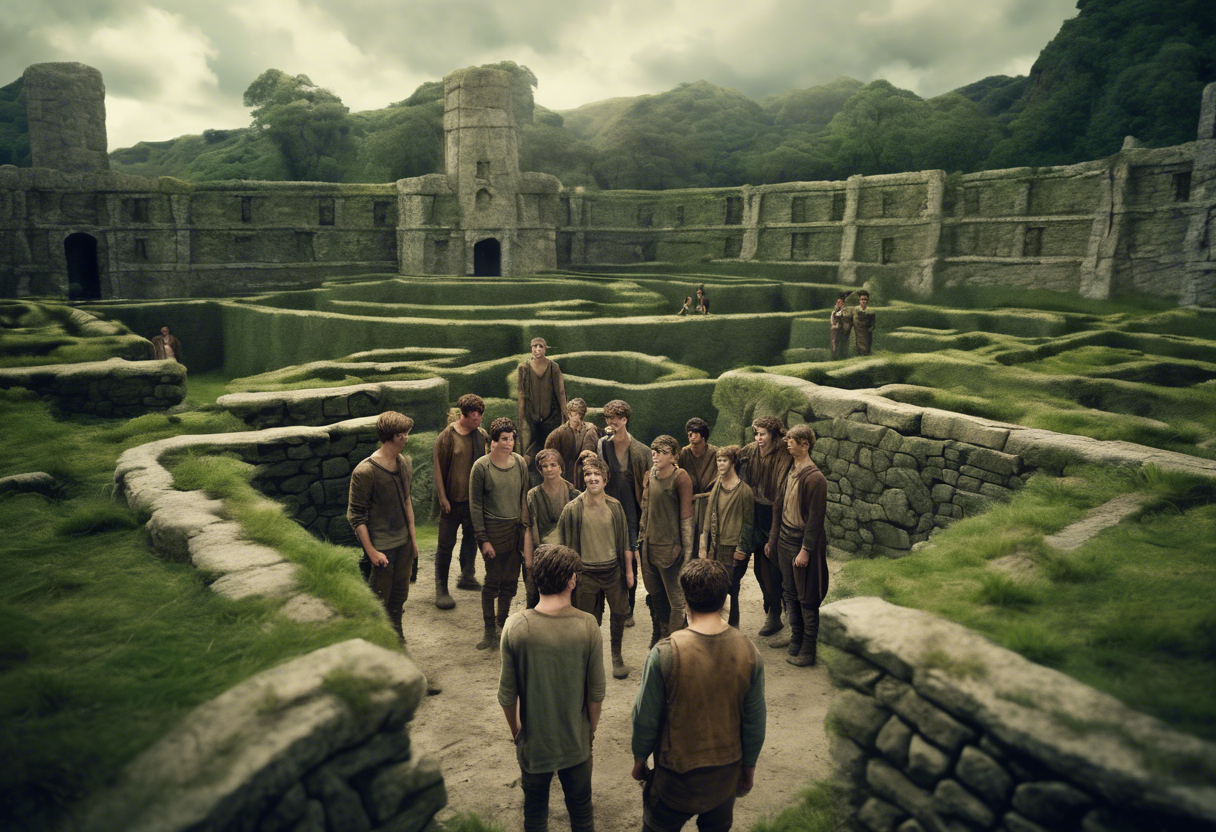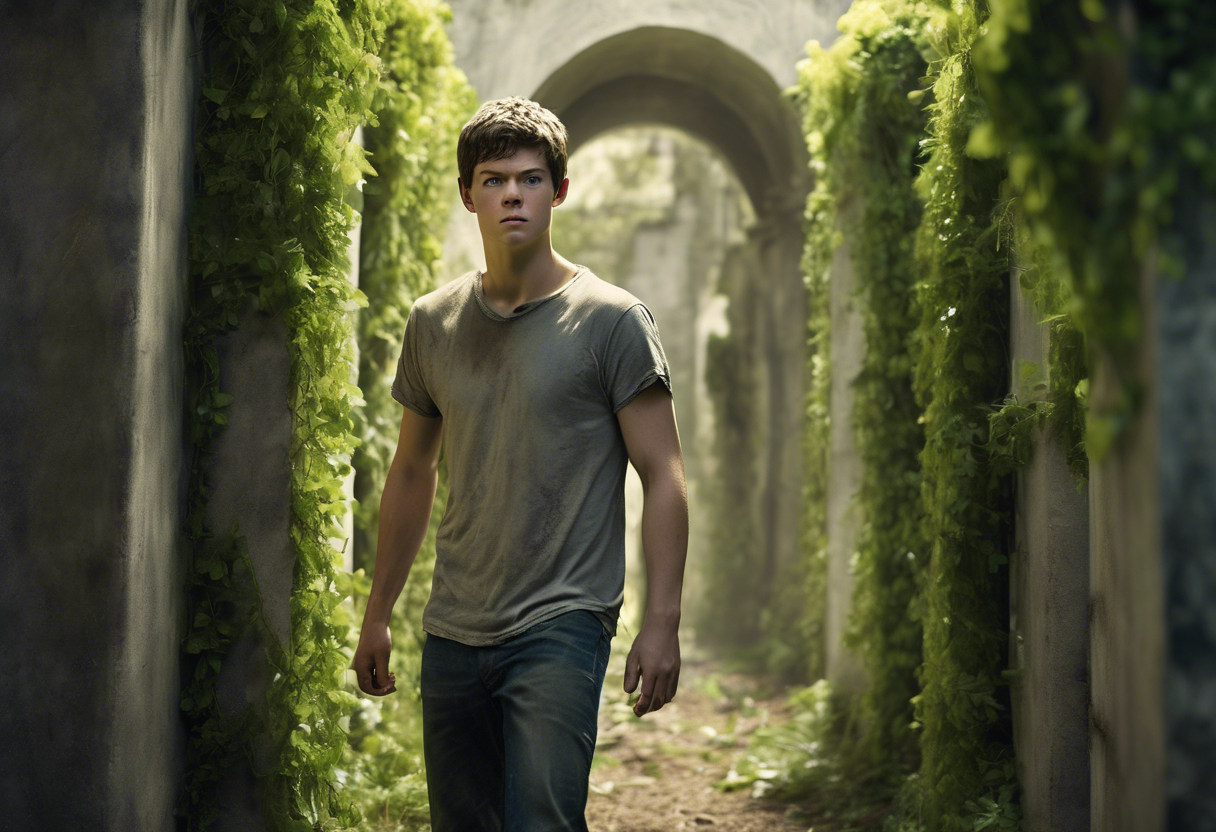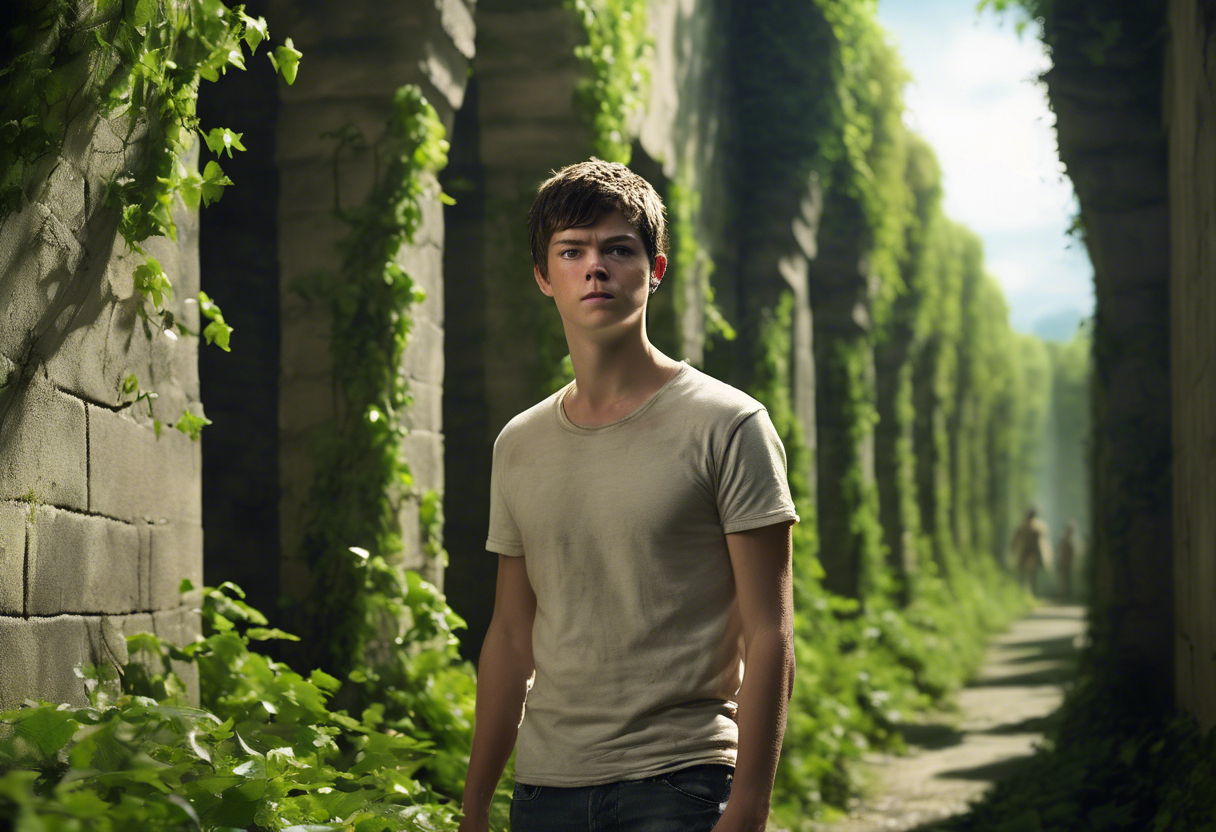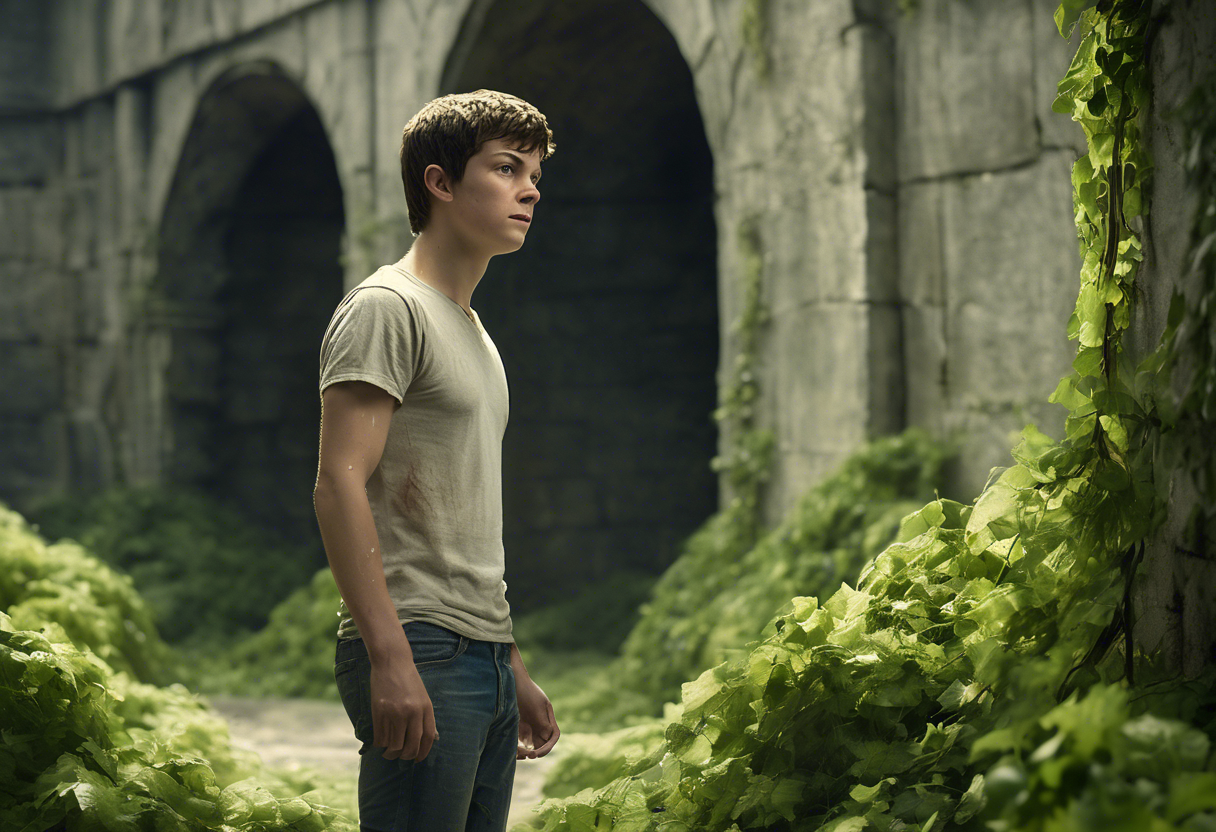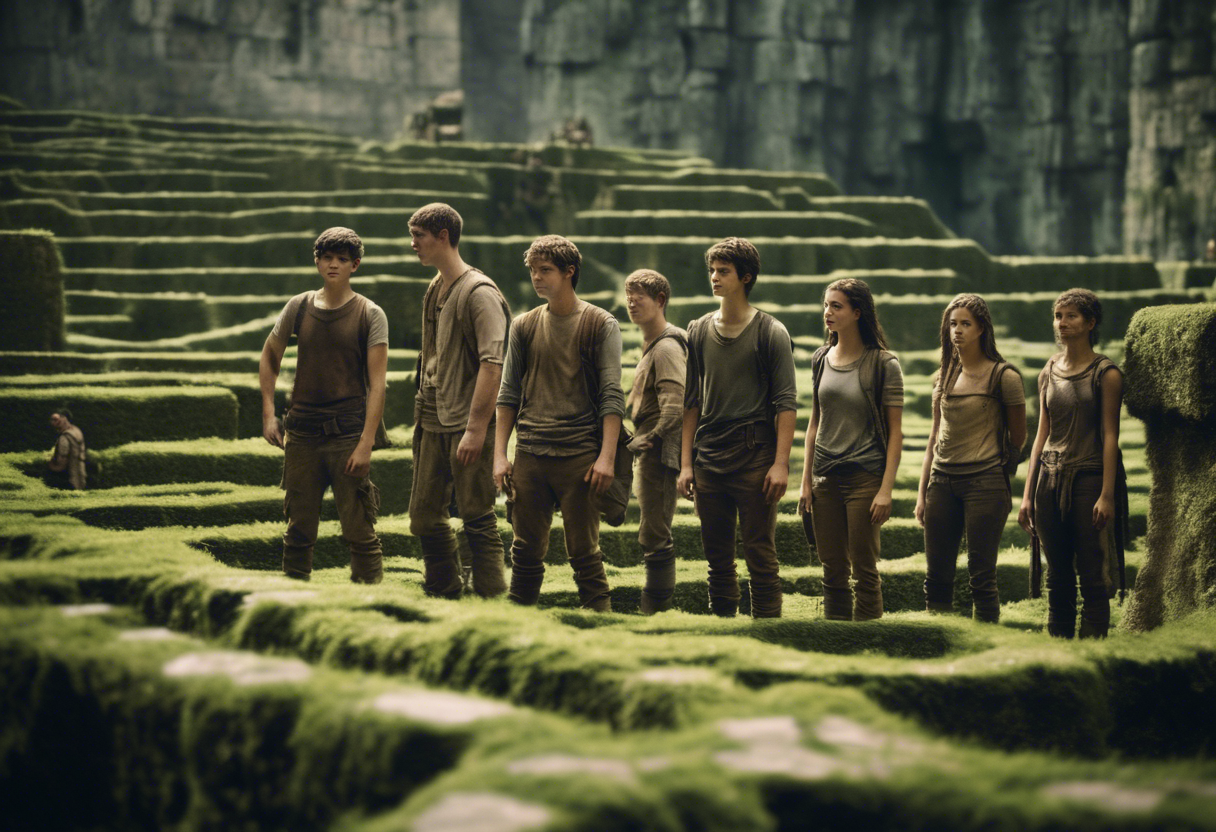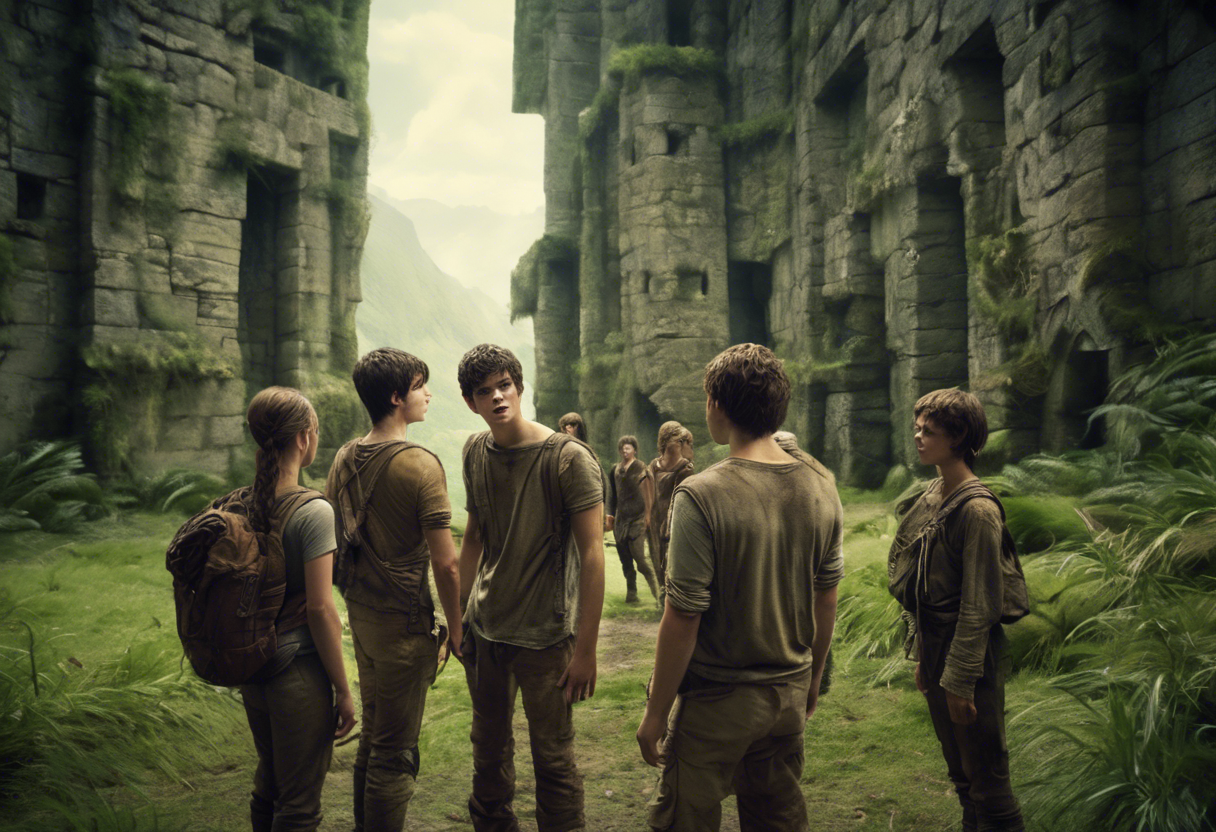Contents
The Maze Runner
Introduction
The Maze Runner is a 2014 American dystopian science fiction film directed by Wes Ball, marking his feature directorial debut. The film is based on James Dashner’s 2009 novel of the same name and is the first installment in The Maze Runner film series. Produced by Noah Oppenheim, Grant Pierce Myers, and T.S. Nowlin, the movie brings to life a gripping narrative that distinguishes itself within the young adult science fiction genre.
The development of The Maze Runner began in January 2011 when 20th Century Fox purchased the film rights to Dashner’s novel, with Gotham Group, Temple Hill Entertainment, and TSG Entertainment on board as producers. Initially, Catherine Hardwicke was set to direct, but Wes Ball was later hired after impressing the producers with his animated short film Ruin, which showcased a similar tone and style[1][4].
Principal photography commenced on May 13, 2013, in Baton Rouge, Louisiana, and concluded on July 12, 2013. The film was released on September 19, 2014, in the United States and received widespread attention for its unique premise and execution.
Plot Summary
The story of The Maze Runner revolves around Thomas, a 16-year-old boy played by Dylan O’Brien, who awakens in a rusty elevator known as the Box with no memory of his past except for his name. He finds himself in the Glade, a courtyard surrounded by an enormous labyrinth known as the Maze. The Glade is inhabited by a group of boys who have been trying to find a way out of the ever-changing Maze for two years.
The Glade is led by Alby, a dark-skinned boy who has been there the longest, and his sidekick Newt. Each month, a new boy arrives in the Box, and Thomas is the latest addition. As Thomas adjusts to his new environment, he learns about the Maze Runners, a group of boys who venture into the Maze daily to map its sections and find an escape route. However, the internal walls of the Maze shift every night, complicating their efforts[1][2].
Thomas’s curiosity and determination lead him to become a Maze Runner, and he soon discovers that the Maze holds more secrets than initially apparent. The appearance of a Griever, a deadly mechanical creature, and the introduction of Teresa, the first girl to arrive in the Glade, further complicate the situation. Thomas’s actions eventually lead to a series of events that challenge the status quo and push the boys to confront the unknown dangers of the Maze[2].
Themes and Symbolism
The Maze Runner is rich in themes and symbolism that enhance its narrative and resonate deeply with audiences. The Glade itself serves as a microcosm of society, with its own rules and hierarchy, representing both safety and confinement. The Maze, with its shifting walls, symbolizes the unknown and the constant struggle for survival and escape[3].
The Grievers, mechanical creatures that terrorize the Gladers, represent the dangers of the unknown and the consequences of disobedience. They also symbolize the oppressive authority of WICKED, the organization behind the Maze, highlighting the control exerted over the boys’ lives[3].
The Flare, a deadly virus that ravages the world outside the Maze, symbolizes the consequences of unchecked scientific experimentation and the destructive power of human hubris. It serves as a reminder of the dangers of tampering with nature and the breakdown of society in the face of adversity[3].
These symbols contribute to the overall narrative, providing insight into the characters’ struggles and motivations, and enhancing the reader’s understanding of the text.
Cultural Impact
The Maze Runner has had a significant cultural impact since its release. The film topped the box office in its opening weekend, grossing $32.5 million and becoming the seventh-highest-grossing debut in September 2014. It went on to earn over $348 million worldwide against a budget of $34 million, making it a commercial success[1][4].
The film’s success spawned a dedicated fan base, comparable to that of Harry Potter and The Hunger Games. Fans have created numerous fanfics, fan art, and videos, showcasing their enthusiasm for the characters and the world created by James Dashner. Even in Korea, a parody featuring K-Pop idols was made, highlighting the film’s global influence[4].
Critical Reception
The Maze Runner received generally positive reviews from critics. Review aggregator Rotten Tomatoes assigns the film a score of 65% based on 175 reviews, with an average rating of 5.9/10. The consensus praises the film’s strong acting, solid premise, and refreshingly dark approach to its dystopian setting[1].
Metacritic gives the film a score of 57 out of 100, based on 34 critics, indicating "mixed or average reviews." However, audiences surveyed by CinemaScore gave the film a grade of A− on an A+ to F scale, reflecting a positive reception from the general audience[1].
Critics like Tim Ryan of The Wall Street Journal and Rafer Guzman of Newsday praised the film for its strong performances and creepy, mysterious atmosphere. Christy Lemire of RogerEbert.com found the film intriguing, noting its refreshingly different tone and degree of detail[1].
Legacy
The Maze Runner has left a lasting impact on the cinematic landscape. It stands out as one of the better young adult book-to-film adaptations, thanks to its engaging premise, strong acting, and well-crafted world-building. The film’s success led to the creation of two sequels, Maze Runner: The Scorch Trials and Maze Runner: The Death Cure, completing the trilogy[1].
The film continues to inspire filmmakers and artists, particularly in the dystopian science fiction genre. Its influence can be seen in various forms of media, from literature to video games, where the concept of a mysterious, deadly maze has become a staple of the genre.
In conclusion, The Maze Runner is a significant film that has carved its place in cinematic history through its compelling narrative, rich symbolism, and cultural impact.

